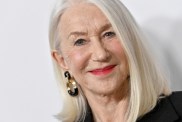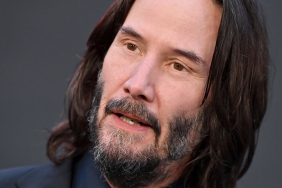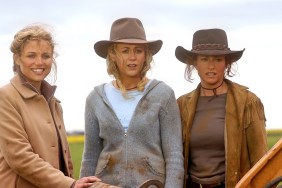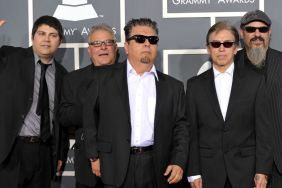Director Richard Linklater has done a lot of different types of movies over the years from the pioneering indies of his early career through big studio comedies like School of Rock, and he’s always been as prolific as he has been diverse. With that in mind, it’s strange to think we haven’t seen a new movie from him in quite some time, and to see his new movie Me and Orson Welles, one would think he has spent time away reinventing himself, because it’s such a departure from anything we’ve seen him do before.
A period piece set in 1937 New York, it stars “High School Musical” star Zac Efron as Richard, a teenager who happens to be in the right time and place to get a role at Orson Welles’ prestigious Mercury Theater among seasoned actors putting on an unconventional production of Shakespeare’s “Julius Caesar.” Richard quickly falls for the older theater manager Sonja, played by Claire Danes, a relationship that could never possibly work while under the auspices of the tyrannical Welles, played with such gusto and charm by Christian McKay that it leaves the most lasting impression on you. Rarely has there been a movie villain as charming and likeable as McKay’s Welles.
ComingSoon.net caught the movie at last year’s Toronto Film Festival and were blown away by the warmth and romanticism of the film incorporating those elements from some of Linklater’s most beloved films like Before Sunset and Before Sunrise, but still feeling very different due to the setting and tone.
We finally had a chance to speak with Linklater about the film a few weeks back for the following rather introspective phone interview:
ComingSoon.net: Hey, Rick, how’s it going? I just realized that it’s been like three years since we last spoke. Has it really been that long?
Richard Linklater: Yeah, this one I’ve been working long and hard on. (laughs) It’s been a longer journey than usual.
CS: I saw it last year at Toronto and it was one of my favorite things I saw there, and I kept hearing it was coming out this year but I didn’t really know when and couldn’t find anyone who knew anything about it.
Linklater: Yeah, it’s kind of an end of the year, holidayish type of movie. We shot it last year, but it would’ve taken a miracle for that to come out last year, so I figured (we’d release it) this year.
CS: Did you do a lot of changes and work on it since then?
Linklater: No, I mean I just mixed it and just finished the film itself. Last year we showed it on HD, so it’s a film film. See it again if you get a chance because the texture of the print looks a lot better.
CS: I read up a bit about the origins of the project and I know you’d been reading the novel because someone gave it to you?
Linklater: Yeah, and I ended up optioning it with my own money and we just sort of proceeded with this creative team trying to get this movie made. You know, if it’s meant to be… the key was finding Christian McKay, of course, to play Orson. I wouldn’t have gone further if I couldn’t have found someone to really play Orson.
CS: You must’ve known that very early on, so did you get him on board shortly after finishing the script? Is that about right?
Linklater: Yeah, it was in stages, get the book and script and then it was the process of… “Okay, next step was find Welles. If we can’t do that, let’s not make the movie.” Once Christian was on board I flew him to Austin, we had an old-fashioned screen test, just kinda realized, “Okay, this is really something special. He will be great. There’s a lotta work to do, but this could be magical.” The fact that he’s unknown was even better.
CS: You’ve done a bunch of work with smaller studios as well as the bigger studios. At any point did you say, “It would be great to get a studio on board,” even a smaller one? Because it does have Zac in it, you know?
Linklater: Yeah, I dunno. I didn’t get the memo, but the industry, they really don’t do films like this anymore. They really weren’t interested. Even once Zac was aboard they were just, “No, we’re not interested.”

CS: That’s surprising because there have been so many really good movies about theater, “Topsy-Turvy,” shot by your DP, is a good example, and Stephen Frears’ “Mrs. Henderson Presents,” both which show the behind the scenes…
Linklater: Those are both British films. I think here, the industry has no interest in this. It’s something that audiences in the bigger, larger film world does, but the American film industry, they’ve narrowed their focus. I’ve felt them narrowing for quite some time and they keep lopping off genres. I make films now and not so long ago this would’ve been a studioish kinda film, but they put all their chips on these big, big, big movies that seems to be working for them.
CS: And you shot this in England… the Isle of Man is considered England still, right?
Linklater: Yeah, it’s a jewel in the crown.
CS: Was that very early that you realized you’d want to go over there to shoot? How did you come to that realization?
Linklater: It just worked out that way. You have a film and we had to recreate New York, West 41st Street somewhere, so it was kind of looking around for that. I found that old theater on the Isle of Man, and there was some subsidy money over there, there was the Film Fund. Just all of the above, it all came together sort of magically, lucky. It’s kind of a Wellesian thing to have to go to over to Europe to get money to make a movie. (Laughs) He got booted out of the American film industry I think in ’42 or so, so he was always over there. They think of him as European practically because he was over there so much.
CS: I know the theater was actually a theater, did you actually recreate some of the streets on streets there?
Linklater: No, that was a backlot at Pinewood. We had a little stretch of 41st and then with the green screen we sort of extended it. We made one street look like all the streets. It’s a bit of a visual trick, a little bit of a puzzle visually that you put together to try to evoke something much bigger than what we actually have. But the theater, it’s an actual old theater about the same age as the Mercury, built around the same time, that beautiful understage area and it was just all kinda great. It just worked for us. We had a handful of photos from the production so that helped us with costumes and helped us with the lighting, how to recreate this play. (Doing) a play within the film was a lot of fun, very dramatic lighting. Welles had lit that thinking it was kind of like the Nuremberg rally, “Triumph of the will,” lights shooting straight up. That was kinda his idea.
CS: Did you have a lot of reference to that stuff and was a lot of the research you might need already covered in Robert’s book?
Linklater: Yeah, Robert had done the heavy lifting. He had done tons of research. He’s a very exacting, historical kinda guy, but then all the visual references, those were available and down to like, the exact stage drawings, the score, the text that Welles worked from. All that was eventually available.
CS: Did you have a lot of photos of the production too?
Linklater: Yeah, you know, like 10 or so. They were all great and that really helped.
CS: How important was it to be accurate to it? There’s always some kind of fictionalization in a movie like this to make it more entertaining, but how much did you really want to stick to just showing what happened?
Linklater: Well, it’s a nice genre, historical fiction, because the history is very accurate. I guess it’s like “Titanic,” where you really try to get that accurate. Then within that there’s this fictional element. Zac’s character really is… there really was a teenager in that play. He was 15 instead of 17, so that’s the fictional, but made him a little older so he could have these adult relations, but he really did set off the sprinklers. I talked to him on the phone and he lives in New York still…
CS: You talked with the guy that Zac actually plays in the movie?
Linklater: Yeah. His name is Arthur Anderson. He’s had a long career in radio and done a lot of voice work. Norman Lloyd, who played Sinner the Poet, he’s still alive. He lives in LA and plays tennis three times a week. He’s like 95 years old. He could kill everybody.
CS: So you actually tried to find some of the real people. Did you try to match up the actors so that they would look like the people they were playing?
Linklater: Well, to varying degrees, the most important was Welles and then Cotten I think. We were so lucky James Tupper came aboard as our Joe Cotton ’cause he looks a lot like him and kinda has that same delivery, spirit and everything. So those were important. You know, John Houseman, Eddie Marsan, you know, he shaves his head. We got his wig just right to look like the thinning (hair). Houseman was bald at some point. Most people know the later John Houseman from “The Paper Chase” and other films, when he was an older personality, but at this stage, we had pictures and we were trying to get him to look like that.

CS: I’ve always been a big fan of Eddie Marsan, so I was really happy to see him in that role.
Linklater: Oh, yeah, we got wonderful actors who can kinda do anything.
CS: I’m also a big fan of Mike Leigh, so I like there are a few connections between this and his films.
Linklater: Oh, me too. I was very flattered Mike Leigh actually saw this movie and really liked it. (chuckles) He told me a funny story about George Coulouris. He was in his very first movie in the ’70s. “Colouris, I cast, he was in my very first movie,” he said, “He quit.” He said Colouris walked off, he did not like the way Mike was… (Laughs) his rehearsal process thing did not compute with him. He quit.
CS: Wow, that’s pretty funny. As a filmmaker yourself, were you at all fascinated with Welles or did you go through that sort of period?
Linklater: Oh, every filmmaker has some relation with Welles. I mean, he’s kind of in his own category, it’s sort of astonishing. If there was one person who were born to make films or do what he did, it was probably Welles. He inspires you in a general sense just like, “Wow, it’s possible,” but then in a specific sense I would say a little less so. You don’t really watch Welles’ films and think, “Oh, I could do that,” or, “I want to do something kinda like that.” You really can’t; his films are really just their own strange, enigmatic little creations. So he doesn’t inspire you in the direct way, maybe in the indirect way. His particular kind of genius was such that (Laughs) I don’t know if it left a lot left over… you’re just kinda wowed and amazed.
CS: Did you get the impression that the personality he had while running the Mercury carried out through his whole career or did he mellow out a bit later?
Linklater: I dunno. I mean, you heard stories and I think his big theme, if you think about it, was the kinda the unnobelness of the individual and that’s what we try to portray here. You can look at him and go, “Oh, he’s a bit of a monster,” or you can look at him and go, “Oh, he’s just a genius.” This is a guy in his theater. He’s paying for it. He can do whatever he wants. That’s cool, that’s good for the art world. What he says to Zac’s character later is kind of telling: “Well, we’re here to make the best art we can and I don’t care if they like it.” There’s something to that. But I don’t know, I think Welles was just kinda burdened with his own genius to such a degree, whatever insecurities were underneath that. But I think he was very generous. If you look at the credits in “Kane” and “Ambersons” he introduces the cast. He gives them plenty and puts himself last, so I never quite bought that Welles took everything and didn’t give much. I think he was aware that while you could be a great person and a mediocre individual as he described it, I think he was generous and he had long-term friendships. I mean, people were very loyal to him. I think if you could find your way into his world and find your place in it then all was well. I just don’t think anyone was meant to go toe to toe with him.
CS: You’ve always seemed pretty laid back to me. Have you ever had a Welles moment or do you ever have moments where you could have one of those moments and are forced to hold it back?
Linklater: I might think things like that, but I think you lead by different methods, we each have a different method. I might think of this, but it’s just not my personality. Who knows what cards anyone’s been dealt, you know?
CS: The first time I saw this movie, I was really surprised, because if I didn’t see your name on it, I would not have guessed you directed it. I assume you’re getting that a lot, so do you feel that this is very different from anything else you’ve done before?
Linklater: Not really. For me it’s just the next film. I think if there’s a commonality maybe it’s sort of the tone or the acting or something, but I dunno. I’m lucky I get to work on different genres, that I’m not too pigeonholed. Maybe no one cares (Laughs) but I think that I’ve earned a certain latitude.
CS: That’s true. Definitely the last five movies you’ve done, they’re all so very different, from “Bad News Bears” to “A Scanner Darkly,” but this seemed very different to me maybe because of the period and also the location…
Linklater: I’m lucky I could jump from… I think in three straight movies I went from a $100,000 movie, “Tape,” to a $30 million film, “School of Rock,” and then back to a $2.3 million film, “Before Sunset.” Very different films, but all close to me. That was earlier in this decade. Now, I can go from “A Scanner Darkly” to “Fast Food Nation” to this. It’s just stories I’m trying to tell. I’m just a storyteller, trying to communicate this.

CS: When you’re trying to make a movie like this, do you ever think, “I wish I had that budget I had for ‘School of Rock’?”
Linklater: Yeah, you know, it would be nice. That’s the good thing about a studio backing. You’ve got those resources, but you know, you make do. They don’t make films like this so I felt lucky to have what I had and just to get it made at all. So yeah, there’s something kinda nice when you have the full-on resources and you’ve got a studio behind you. But it was Wellesian of us to have to kinda scramble it together. Hollywood kicked Welles out a long time ago, they’re not gonna re-raise him now. (Laughs)
CS: Well, I don’t think they’re gonna kick you out, because you had a pretty sizeable hit.
Linklater: Oh well, I’m still an outsider. I don’t live here. I’m not really in any of the big media centers, New York or LA. I like to think I’ve got a foot in the industry and I could do all this and that, but I think from their perspective I’m probably (Laughs) pretty marginal. I don’t really know that many people.
CS: It’s so strange to hear that, because Austin seems to be the place where everything is going on right now.
Linklater: Yeah, we’ve got our own little world there that’s pretty cool, but I don’t know.
CS: I was curious about the idea to self-distribute, because that’s more or less how things work when you distribute with Freestyle, is that correct?
Linklater: Well, we’re sort of a hybrid. We’re sort of a lot of different entities come together. “Self-distribution” kind of connotates handing out flyers on the street. No, we’ve got millions of dollars in P & A. There’s several businesses involved, but it’s just kind of a new way you do it I think.
CS: So what have you been working on since finishing this? I know you were going to do “Liars” at one point. I don’t know if that’s gonna happen with Miramax being in flux.
Linklater: No, no, that’s not happening. I have a few other projects I’m trying to get off the ground, a couple comedies, one film set in… who knows?
CS: You’ve been doing a lot of writing basically?
Linklater: Yeah, I have a college comedy I wrote that I was really excited about. Again, it’s just a hard time for the industry in the kind of space I occupy, not the big studio film, not the little… just this kind of medium-sized, that’s what’s really suffering right now, films that used to be made by the studios. Then these indie companies are all going out of business, it’s such a bad time for them. I don’t know, it’s just a weird time right now, but you have to have faith that there’s an audience out there, there’s the films, it’s the in-between thing in the system that’s beyond our control.
CS: Are you still doing “Boyhood,” that long-term project you’d been doing?
Linklater: Yeah, I just shot another year this last weekend. I shoot a few days a year. It was a three-day shoot.
CS: So next year around the same time you’ll just film a few more days?
Linklater: Well, it’s different times of the year, but yeah, roughly once a year.
CS: It’s funny because you’ve been talking about the studios and just in the last month both Spike Jonze and Wes Anderson have done these PG movies for the studios, adapting very well known children’s books. You didn’t adapt a book but you did these fairly big family-friendly films. Do you look back at those days fondly at all?
Linklater: I’ve never had a bad creative experience. I kind of have a good gauge for what’s gonna work for me or not. I’m sure Wes and Spike those were bigger budget. With both “Bears” and “School of Rock,” I was in the comfortable 30ish range, but I could see when you hit 60, 70, 100 million (Laughs) the temperature goes up pretty significantly I imagine. So I admire those guys. Anyone who could get what I consider a personal film, regardless of genre–you can tell they’re really expressing themselves, saying something personal–made within the system, that takes a lot of guts.
CS: If a year from now or two years from now a studio came to you with $100 million and said, “Hey, we want you to do a big movie and you’ll probably need this much money to make it,” would you be completely floored, or would you want to try it out?
Linklater: I’ve turned down numerous things that ended up being huge films, but every time I do a film I gotta think I’m the only guy who would not only be the best guy for it, but would even want to make a film like this. So you don’t have do delude yourself into thinking like, “Why am I doing this? Oh, ’cause I’m the only guy.” That’s what I love about an Oliver Stone film or something, it’s like not only is he the best guy, but he’s the only one that would make these movies. He has a unique touch and I like to feel that way about most of the stuff I do and the couple times, “Bears” and “School of Rock,” when I came aboard ’em, those are the two films I’ve made that would’ve been made with or without me probably. I still like to think I’m the best guy for this. Because of my baseball background. I was the best guy for “Bad News Bears.” Because of my rock and roll, you know, whatever it was, having a daughter that age, that I was the right guy for “School of Rock.” I feel like I’m the right guy. I mean, I have to be cast carefully. I have to feel I’m well-cast in that situation, but I turn down most things just because I’ve got other things I’m usually working on, but I’m always up for the kismet of a nice little marriage of personality and project.

CS: In the next couple years you have a couple big milestones, you have your 50th birthday next year and you have the 20th anniversary of “Slacker” the year after that. Have you been thinking about any of those at all as far as wanting to do something or go in a different direction?
Linklater: Not really. I think I’ve been going in that different direction constantly (laughs) or I’ve been trying to anyway, just follow my muse. So no, I hit those milestones just kinda thinking, “Eh, I can’t complain.” I mean, things could always be a little better. I could have more backing or more this or that, but in the big picture I’m in a pretty rarified world and situation that I would look like a total jerk to complain about anything so I feel like I’m one of the fortunate ones.
CS: Were you at one point going to revisit “Dazed and Confused” and update the characters or anything like that?
Linklater: You know, that got misinterpreted. I have a script I wrote, and it’s kind of a college comedy and I called it my sequel to “Dazed and Confused.” It’s none of the same characters. It’s just my own spiritual sequel like, “Oh, these are my college years, the way ‘Dazed’ was my high school, this is my college.” So that’s all, but it’s not about revisiting those exact same characters. But I do have this kinda fun college comedy about the first weekend of college.
CS: Have you ever thought about doing something new with any of the actors from “Dazed and Confused” or one of your earlier films?
Linklater: I’ve cast numerous of them in subsequent films here and there and I like all of them so much. That’s the hardest thing in this business that there’s not enough roles to go around. I think of all those people so fondly. It’s fun when it does work out, when Rory Cochrane is the right guy for “A Scanner Darkly.” I’ve been able to work with Matthew again or Nicky Katt or Parker Posey here. Any of them, it’s always great. So, you never know; hopefully it’s a long career.
CS: Well it’s going good so far and hopefully we’ll see you again soon with another movie. Hopefully it won’t be another three years.
Linklater: Yeah, I hope it’s one a year.
CS: It’s strange because I think I saw you three times in one year. There was a period when you had a movie out like every month.
Linklater: (Laughs) Two times is the most I’ve had, two in the same year. People just get sick of you, but now it’s been a little while. There was a little gap which is uncharacteristic of me so it’s like, “Oh, well you must’ve worked harder on this film.” It’s like, “Well, I did, but…” (laughs)
CS: I hope people see it because I really do like it a lot and I’m going to try to give it the biggest push I can. I’m going to talk to Christian too.
Linklater: Great, he’s a great guy. Thanks so much for your support, it really means a lot.
Me and Orson Welles opens in New York and L.A. on Wednesday, November 25, and then expands into other cities on December 4 and December 11. Look for our exclusive interview with one of the stars of the movie, Christian MacKay, Orson Welles himself, sometime next week.









